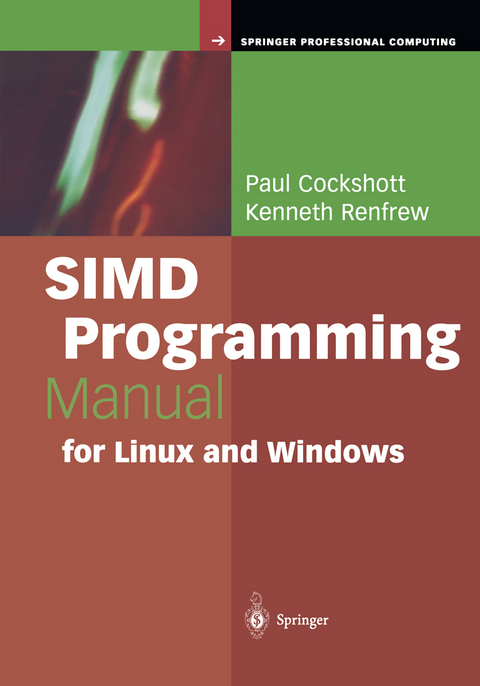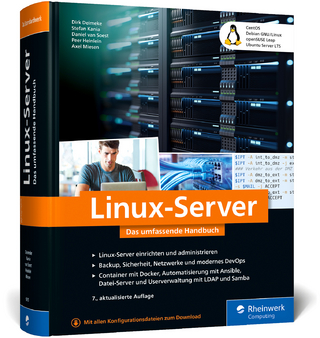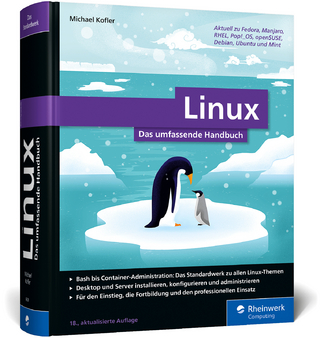
SIMD Programming Manual for Linux and Windows
Springer London Ltd (Verlag)
978-1-85233-794-0 (ISBN)
I SIMD Programming.- 1 Computer Speed, Program Speed.- 2 SIMD Instruction-sets.- 3 SIMD Programming in Assembler and C.- 4 Intel SIMD Instructions.- 5 3DNOW Instructions.- II SIMD Programming Languages.- 6 Another Approach: Data Parallel Languages.- 7 Basics of Vector Pascal.- 8 Algorithmic Features of Vector Pascal.- 9 User-defined Types.- 10 Input and Output.- 11 Permutations and Polymorphism.- III Programming Examples.- 12 Advanced Set Programming.- 13 Parallel Image Processing.- 14 Pattern Recognition and Image Compression.- 15 3D Graphics.- IV VIPER.- 16 Introduction to VIPER.- Appendix A Compiler Porting Tools.- A.1 Dependencies.- A.2 Compiler Structure.- A.2.1 Vectorisation.- A.2.2 Porting Strategy.- A.3 ILCG.- A.4 Supported Types.- A.4.1 Data Formats.- A.4.2 Typed Formats.- A.4.3 ref Types.- A.5 Supported Operations.- A.5.1 Type Casts.- A.5.2 Arithmetic.- A.5.3 Memory.- A.5.4 Assignment.- A.5.5 Dereferencing.- A.6 Machine Description.- A.6.1 Registers.- A.6.2 Register Sets.- A.6.3 Register Arrays.- A.6.4 Register Stacks.- A.6.5 Instruction Formats.- A.7 Grammar of ILCG.- A.8 ILCG Grammar.- A.8.1 Helpers.- A.8.2 Tokens.- A.8.3 Non-terminal Symbols.- Appendix B Software Download.- Appendix C Using the Command Line Compiler.- C.1 Invoking the Compiler.- C.1.1 Environment Variable.- C.1.2 Compiler Options.- C.1.3 Dependencies.- C.2 Calling Conventions.- C.3 Array Representation.- C.3.1 Range Checking.- References.
| Erscheint lt. Verlag | 16.6.2004 |
|---|---|
| Reihe/Serie | Springer Professional Computing |
| Zusatzinfo | XXVI, 352 p. |
| Verlagsort | England |
| Sprache | englisch |
| Maße | 178 x 254 mm |
| Themenwelt | Informatik ► Betriebssysteme / Server ► Unix / Linux |
| Informatik ► Betriebssysteme / Server ► Windows | |
| Informatik ► Grafik / Design ► Digitale Bildverarbeitung | |
| Informatik ► Theorie / Studium ► Compilerbau | |
| Schlagworte | Pentium Prozessor • Programmierung |
| ISBN-10 | 1-85233-794-X / 185233794X |
| ISBN-13 | 978-1-85233-794-0 / 9781852337940 |
| Zustand | Neuware |
| Informationen gemäß Produktsicherheitsverordnung (GPSR) | |
| Haben Sie eine Frage zum Produkt? |
aus dem Bereich


